Therapy for health anxiety
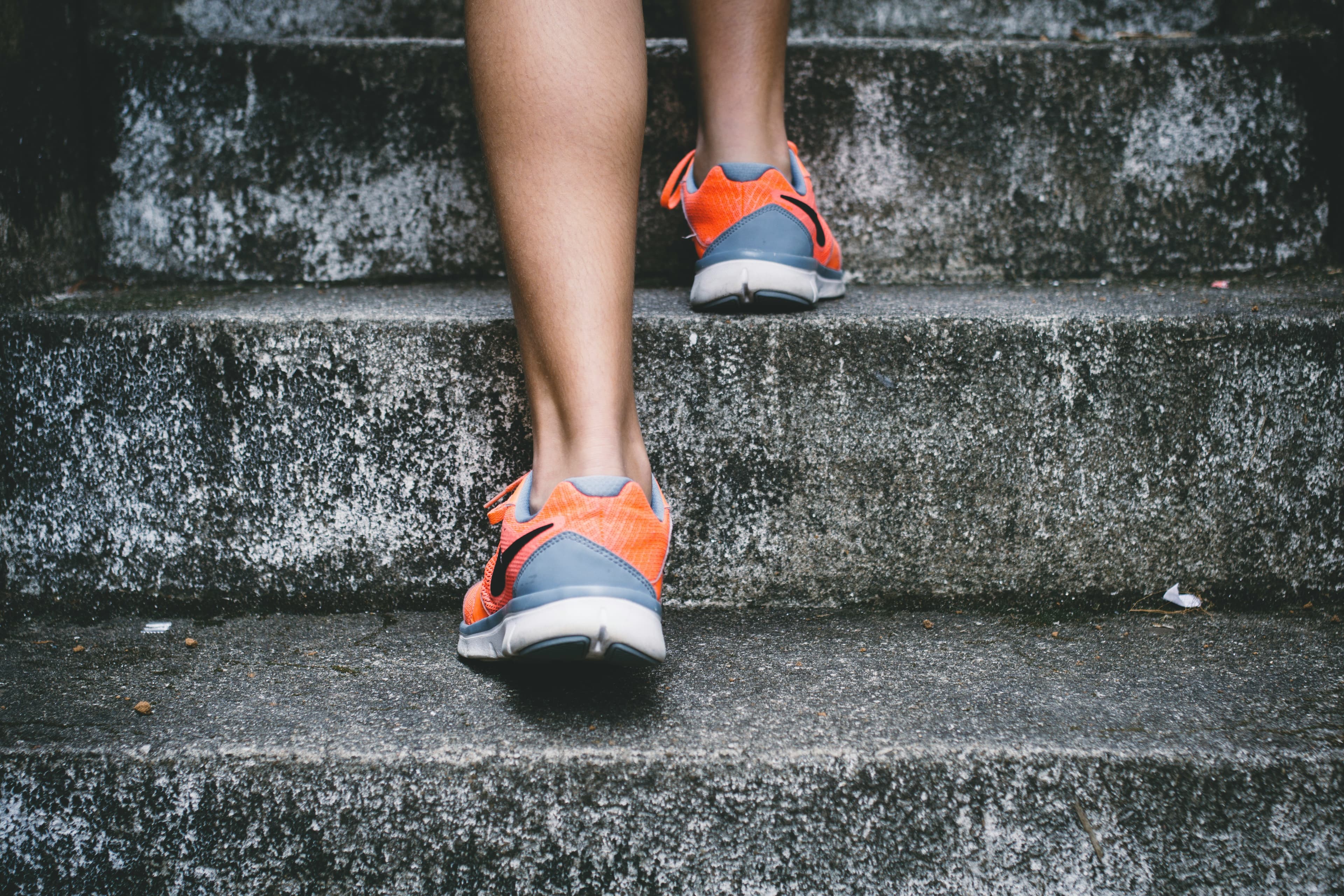
That headache suddenly feels like a tumour. A small chest sensation becomes a sign of a heart attack. Every twinge sends you to Google at three in the morning, and every search makes your fear stronger. You may check your pulse over and over, scan your body for changes, rush to doctors, or avoid them entirely because you fear the results. Health anxiety can take over your thoughts, but it is treatable. With the right support, you can step out of the constant fear and regain the calm and clarity you deserve.
Understanding health anxiety
Health anxiety is the persistent fear that you have or will develop a serious illness. It goes far beyond normal worry. It feels like a constant conviction that something is medically wrong even when your tests are normal and your doctors are reassuring.
What it actually feels like
Your body becomes something you monitor all day. Every heartbeat, twitch, or gurgle feels suspicious. Ordinary sensations get interpreted as signs of serious disease. A muscle spasm becomes ALS. A headache becomes a tumour. The sensations are real, but the fear magnifies them far beyond what they mean.
You may spend hours searching your symptoms, reading medical forums, checking your body, or taking your temperature. Each check calms you for a moment, then the doubt returns. You wonder if the doctor missed something or if you are the rare case that tests cannot detect yet.
Some people visit doctors often, hoping someone will find the cause. Others avoid healthcare completely because they fear the results. Both patterns come from the same anxiety. Research inAnxiety Canadashows that health anxiety reduces quality of life and often goes untreated.
Common patterns
You may fixate on one illness or shift from one fear to another. You may look for reassurance from loved ones or online communities, avoid health news, or fear exercise because your heart rate increases. Even small symptoms can lead to worst case scenarios.
Reassurance never lasts. You may feel relieved after a test result, then a new sensation appears and the cycle begins again. It is draining and lonely. Others may not understand why you cannot simply trust the results. This does not mean you are irrational. It means you are living with an anxiety disorder that focuses on health, and it responds well to proper treatment.
How common is health anxiety in Canada?
Data from the Canadian Psychological Association “Psychology Works” fact sheet: Health Anxiety and related clinical research.
The real impact of health anxiety
Your time and mental energy
Health anxiety drains your focus and your day. Hours slip into checking symptoms, searching online, or seeking reassurance. Work becomes harder because you are monitoring your body instead of concentrating. Plans get cancelled because you fear something is wrong. Sleep is disrupted by worry and constant scanning. The energy spent on fear leaves little room for hobbies, goals, or a sense of presence in your own life.
Relationships and social life
Reassurance from loved ones eventually wears thin. Partners become overwhelmed, friends stop engaging, and conversations turn into updates about your health. You may avoid social settings out of fear of getting sick or hide your anxiety entirely, which creates distance. This isolation often makes the anxiety stronger, creating a cycle that is hard to break.
Your actual physical health
Ongoing anxiety affects your body. Stress impacts sleep, digestion, immunity, and heart health. Frequent medical tests carry risks, and avoiding exercise or routine care means you miss out on habits that protect your well-being. In some cases, the sensations you fear are heightened by anxiety itself, which reinforces the cycle and makes the symptoms feel even more real.
How therapy helps with health anxiety
Why health anxiety needs specialized treatment
Health anxiety doesn't respond to reassurance. If it did, you'd be fine after the first normal test result. It requires treatment that addresses the underlying anxiety mechanisms: intolerance of uncertainty, hypervigilance to bodily sensations, catastrophic misinterpretation of symptoms, and safety behaviours (checking, seeking reassurance, googling) that maintain the problem. The right therapist understands that your fears feel completely real and valid to you, even as they help you see how anxiety is distorting your perception of risk.
What happens in therapy
Therapy for health anxiety is active and structured. You won't just talk about your fears. You'll learn to understand how health anxiety works, identify your specific patterns and triggers, gradually reduce safety behaviours, learn to tolerate uncertainty about health, and develop new ways of relating to body sensations and fears. Your therapist helps you test whether your behaviours are helping or maintaining the problem through behavioural experiments.
Evidence-based approaches
Cognitive behavioural therapy (CBT)
CBT for health anxiety is the most researched treatment and highly effective. Studies in Dialogues in Clinical Neuroscience show significant symptom reduction. You learn to identify catastrophic thinking patterns ("This headache must be a tumour"), examine the evidence objectively, and develop more balanced interpretations. The focus is on changing your relationship with bodily sensations rather than eliminating them.
Exposure and response prevention (ERP)
This involves deliberately triggering health anxiety (reading about illnesses, noticing body sensations, sitting with uncertainty) while preventing your usual safety behaviours (no googling, no checking, no reassurance seeking). It sounds terrifying, but it's done gradually and teaches your brain that you can handle the anxiety without the compulsive behaviours. Over time, the anxiety lessens because you're no longer reinforcing the fear cycle.
Mindfulness and acceptance approaches
These teach you to notice body sensations and anxious thoughts without reacting to them. Instead of "I feel chest tightness, I must be having a heart attack, I need to check," you learn "I notice chest tightness, I notice the thought about heart attacks, I'm choosing not to engage with this spiral." Mindfulness helps you observe your body without judgment or catastrophizing, breaking the automatic fear response.
Metacognitive therapy
This newer approach focuses on your beliefs about worry itself. Instead of challenging specific health thoughts, you examine beliefs like "I must pay attention to symptoms or I'll miss something serious" or "Worrying keeps me safe." You learn that the problem isn't the thoughts themselves but your response to them. This can be particularly effective if you've tried CBT before with limited success.
The therapy journey for health anxiety
Starting out
Your therapist begins by understanding your specific fears. What illnesses worry you, what triggers the anxiety, how often you check your body, and how much reassurance you seek. They also explore any real medical issues or family history that may influence your fears.
They help you separate health anxiety from real medical concerns. If you need an up to date health check, they may suggest that first. This ensures that treatment focuses on the anxiety itself, not on ignoring legitimate symptoms.
The middle part (the hard work)
This stage involves changing long standing habits. You build a fear ladder and work through it gradually. You might delay googling symptoms, reduce body checking, and learn to notice sensations without assuming danger.
Anxiety usually increases at first. That is normal and part of the process. Your brain learns that you can tolerate uncertainty and that feared outcomes do not happen. Your therapist supports you as you practise these skills.
Setbacks will happen. A new sensation appears and you spiral again. Your therapist helps you view these moments as information, not failure.
Building lasting change
Over time, you think about health less often. Sensations feel less threatening. You learn to notice them without rushing to catastrophic conclusions. You become more confident in your ability to handle uncertainty.
Many people see improvement within twelve to twenty sessions, though the pace varies. You will know it is working when health fears no longer dominate your day, when checking fades, and when sensations no longer trigger immediate fear.
Find a therapist who specializes in health anxiety
Choosing the right therapist matters. Each province in Canada has its own regulations, which is why working with a recognized professional can make a real difference in your care. Stellocare takes the uncertainty out of the process by listing only verified therapists you can trust.
The right therapist for you
No therapists found with these specialties in Ontario.
Try selecting a different province.Resources and strategies for managing health anxiety
Resources and support
Anxiety Canada
Anxiety Canada provides clear information about health anxiety along with practical CBT based strategies and worksheets. Their My Anxiety Plan program teaches skills that help reduce worry and checking behaviours. Their MindShift app includes modules that support people who experience health related anxiety.Visit Anxiety Canada
Canadian Mental Health Association
CMHA offers anxiety education and skills groups across many provinces. Their national BounceBack program provides free CBT based coaching and self guided modules that help reduce worry and rumination. While not specific to health anxiety, the program teaches core skills that many people find helpful.Learn about BounceBack
Centre for Addiction and Mental Health
CAMH provides education on anxiety conditions, including worry, avoidance and reassurance seeking behaviours that often appear in health anxiety. Their anxiety information hub includes screening tools and self help materials that can support people who are deciding whether therapy may help.Visit CAMH Anxiety Resources
Books and self help resources
Evidence shows that CBT based self help can meaningfully reduce health anxiety. Recommended options include Overcoming Health Anxiety by David Veale and Rob Willson, and The Worry Cure by Robert Leahy. These books teach practical cognitive and behavioural strategies that many people use along with therapy.
Practical strategies
Breaking the google habit
- Delay, don't deny: Tell yourself you can google in one hour. Often the urge passes. Gradually extend the delay time.
- Use website blockers: Apps like Freedom or Cold Turkey block medical websites during times you set. Make it harder to automatically search.
- Replace the behaviour: When you get the urge to google, do something else for 10 minutes first. Call someone, go outside, do a puzzle.
- Notice the pattern: Googling never actually helps. You find something scarier or get temporary relief that doesn't last. Recognizing this pattern helps you resist.
Reducing body checking
- Set specific limits: Check your pulse only twice daily at set times, rather than constantly. Gradually reduce frequency.
- Notice the urge without acting: "I'm noticing the urge to check. I'm choosing not to." Urges pass if you don't feed them.
- Redirect attention: When you catch yourself scanning your body, deliberately shift attention outward to your environment.
Managing reassurance seeking
- Tell your people: Let close family or friends know you're working on health anxiety and ask them not to provide reassurance when you seek it. This feels mean but helps recovery.
- Catch yourself: Notice when you're about to ask "Do you think I'm okay?" or "Does this look normal?" Stop yourself and sit with the uncertainty.
- Self-reassurance is still reassurance: Checking test results repeatedly or feeling your pulse for the twentieth time counts as reassurance seeking. Treat it the same way.
Tolerating uncertainty
- Accept that uncertainty exists: You cannot be 100% certain about your health ever. No one can. Learning to live with this is central to recovery.
- Practice with small uncertainties: Don't check if you locked the door. Don't verify that text sent. Build your tolerance for not knowing.
- Challenge magical thinking: Checking doesn't prevent illness. Worrying doesn't keep you safe. These behaviours just maintain anxiety.
Relating differently to body sensations
- Normalize sensations: Bodies are noisy. Twitches, twinges, racing hearts, dizziness, numbness... these are incredibly common and usually mean nothing.
- Consider anxiety as the cause: Many symptoms you attribute to illness are actually anxiety symptoms. Anxiety causes real physical sensations.
- Practice exposure to sensations: Exercise to trigger a racing heart. Spin to feel dizzy. Hyperventilate to feel breathless. Learn these sensations are uncomfortable but not dangerous.
NOCD (originally for OCD but works well for health anxiety's compulsive patterns), MindShift CBT from Anxiety Canada, Sanvello (tracks anxiety patterns), and simple meditation apps like Insight Timer to practice sitting with discomfort without reacting.
Questions people ask about health anxiety therapy
But what if I actually have something wrong and therapy makes me ignore it?
This is the question everyone with health anxiety asks. Here's the thing: therapy doesn't teach you to ignore symptoms. It teaches you to respond proportionally. You learn to distinguish between symptoms that warrant medical attention and normal body sensations that anxiety is amplifying. Your therapist will help you develop guidelines for when to seek medical care that aren't driven by anxiety. The goal is appropriate health monitoring, not avoidance or excessive vigilance.
How do I know if my health concerns are legitimate or just anxiety?
Work with your doctor to establish baseline health checks appropriate for your age and risk factors. Once you've had proper medical evaluation and monitoring plans are in place, trust that. Health anxiety makes you doubt medical reassurance, but that doubt is the anxiety talking, not evidence. Your therapist can help you reality-test whether your concerns are proportional to actual risk.
Will I need to stop going to the doctor?
No. You need appropriate medical care. What you'll work on is reducing excessive or unnecessary medical seeking driven by anxiety rather than symptoms. You might develop an agreement with your therapist and doctor about when medical consultation is warranted versus when it's reassurance seeking. The goal is balanced healthcare use, not avoidance.
Can medication help with health anxiety?
SSRIs (selective serotonin reuptake inhibitors) can reduce health anxiety symptoms for many people, particularly when anxiety is severe. Medication can make it easier to engage with therapy by reducing baseline anxiety enough that you can practice new behaviours. Some people use medication temporarily while learning skills in therapy; others benefit from longer-term medication. Discuss options with your doctor or psychiatrist.
What if I've had health anxiety for years? Can I still get better?
Yes. How long you've had health anxiety doesn't determine whether treatment will work. People who've struggled for decades can see significant improvement with proper treatment. The patterns might be deeply ingrained, which means therapy might take longer, but change is absolutely possible regardless of duration.
My family member has health anxiety and won't get help. What can I do?
Stop providing reassurance, as hard as that is. When they ask if you think they're okay or if symptoms seem serious, respond with "I understand you're worried, but I'm not the right person to answer that. Have you talked to your doctor?" Encourage professional help without pushing too hard. Share information about health anxiety treatment. Understand their fear feels very real to them even if it seems irrational to you.
Related concerns
References
- Tyrer, P., Cooper, S., Salkovskis, P., Tyrer, H., Crawford, M., Byford, S., ... & Barrett, B. (2014). Clinical and cost-effectiveness of cognitive behaviour therapy for health anxiety in medical patients: a multicentre randomised controlled trial. The Lancet, 383(9913), 219-225.
- Sunderland, M., Newby, J. M., & Andrews, G. (2013). Health anxiety in Australia: prevalence, comorbidity, disability and service use. British Journal of Psychiatry, 202(1), 56-61. Retrieved from https://pubmed.ncbi.nlm.nih.gov/22500013/
- Abramowitz, J. S., Schwartz, S. A., & Whiteside, S. P. (2002). A contemporary conceptual model of hypochondriasis. Mayo Clinic Proceedings, 77(12), 1323-1330.
- Taylor, S., & Asmundson, G. J. (2004). Treating health anxiety: A cognitive-behavioral approach. New York: Guilford Press.
- Salkovskis, P. M., Rimes, K. A., Warwick, H. M., & Clark, D. M. (2002). The Health Anxiety Inventory: development and validation of scales for the measurement of health anxiety and hypochondriasis. Psychological Medicine, 32(5), 843-853.
- Olatunji, B. O., Kauffman, B. Y., Meltzer, S., Davis, M. L., Smits, J. A., & Powers, M. B. (2014). Cognitive-behavioral therapy for hypochondriasis/health anxiety: a meta-analysis of treatment outcome and moderators. Behaviour Research and Therapy, 58, 65-74. Retrieved from https://www.ncbi.nlm.nih.gov/pmc/articles/PMC4610618/
- Hedman, E., Axelsson, E., Andersson, E., Lekander, M., & Ljótsson, B. (2016). Exposure-based cognitive-behavioural therapy via the internet and as bibliotherapy for somatic symptom disorder and illness anxiety disorder: randomised controlled trial. British Journal of Psychiatry, 209(5), 407-413.
- Veale, D., & Willson, R. (2009). Overcoming Health Anxiety: A self-help guide using cognitive behavioural techniques. London: Robinson.
- Cooper, K., Gregory, J. D., Walker, I., Lambe, S., & Salkovskis, P. M. (2017). Cognitive behaviour therapy for health anxiety: a systematic review and meta-analysis. Behavioural and Cognitive Psychotherapy, 45(2), 110-123.
- McManus, F., Surawy, C., Muse, K., Vazquez-Montes, M., & Williams, J. M. G. (2012). A randomized clinical trial of mindfulness-based cognitive therapy versus unrestricted services for health anxiety (hypochondriasis). Journal of Consulting and Clinical Psychology, 80(5), 817-828.
- Weck, F., Richtberg, S., & Neng, J. M. (2014). Epidemiology of hypochondriasis and health anxiety: comparison of different diagnostic criteria. Current Psychiatry Reviews, 10(1), 14-23.
- Barsky, A. J., & Ahern, D. K. (2004). Cognitive behavior therapy for hypochondriasis: a randomized controlled trial. JAMA, 291(12), 1464-1470.
- Fink, P., Ørnbøl, E., & Christensen, K. S. (2010). The outcome of health anxiety in primary care: a two-year follow-up study on health care costs and self-rated health. PloS One, 5(3), e9873.
- Greeven, A., van Balkom, A. J., Visser, S., Merkelbach, J. W., van Rood, Y. R., van Dyck, R., ... & Spinhoven, P. (2007). Cognitive behavior therapy and paroxetine in the treatment of hypochondriasis: a randomized controlled trial. American Journal of Psychiatry, 164(1), 91-99.
- Lovas, D. A., & Barsky, A. J. (2010). Mindfulness-based cognitive therapy for hypochondriasis, or severe health anxiety: a pilot study. Journal of Anxiety Disorders, 24(8), 931-935.
About Stellocare
Stellocare is a Canadian platform where you can find the best fit therapist for you. Search the right thperaists now by asking our AI, browsing our list, or finding our social workers for personal referral.

Natalie Bender
Registered Psychotherapist (Qualifying) (ON)
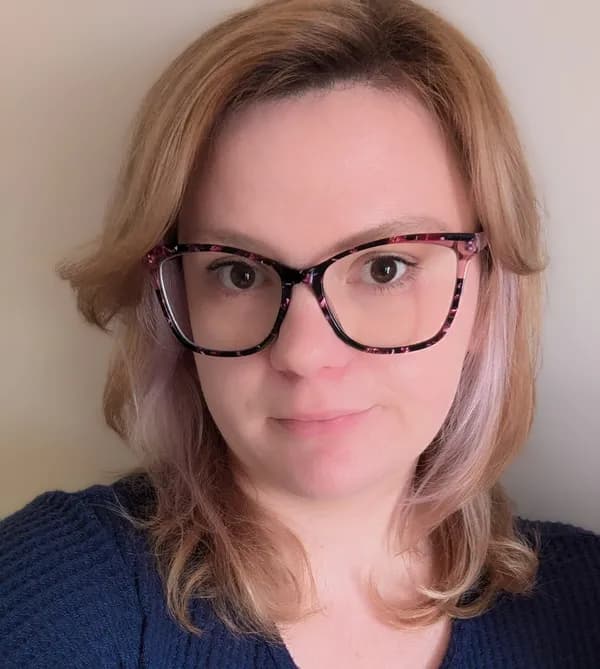
Jessica Marshall
Registered Counselling Therapist (NS)

Kat Sevsek
Registered Psychotherapist (Qualifying) (ON)

Jeromy Deleff
Canadian Certified Counsellor

Andrea Laurie
Canadian Certified Counsellor

Natasha Elliott
Registered Psychotherapist (ON)

Carol Ma
Registered Social Worker (ON)

Christine Chambers
Registered Psychotherapist (ON)
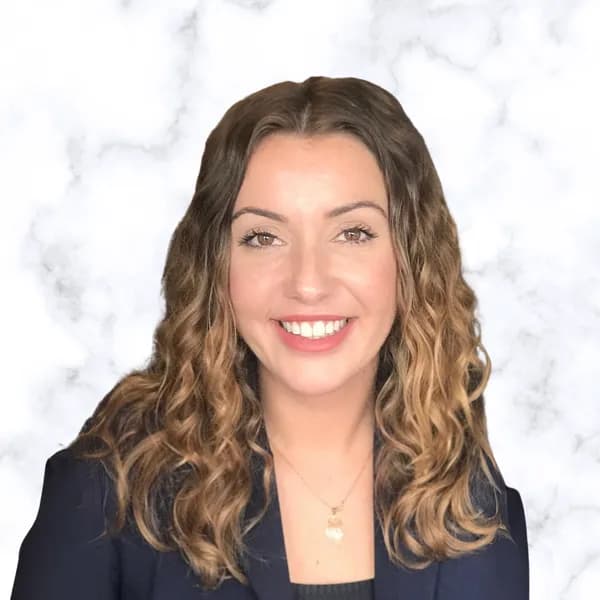
Jessica Maronski
Registered Psychotherapist (ON)

Delia Petrescu
Registered Psychotherapist (ON)

Melissa Recine
Registered Psychotherapist (ON)

Michaela Leedahl
Registered Social Worker (SK)

Liz Hagerty
Registered Social Worker (BC)
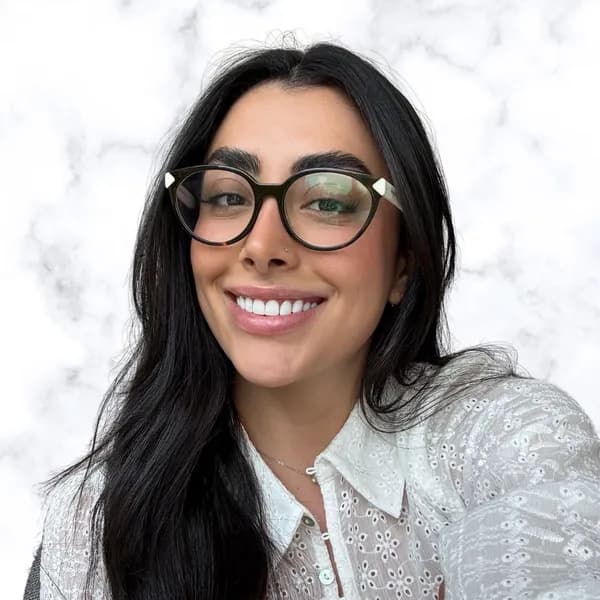
Kimia Taghavi
Registered Psychotherapist (Qualifying) (ON)

Diana Freitas
Registered Social Worker (ON)

Marla Soubhie
Registered Psychotherapist (Qualifying) (ON)
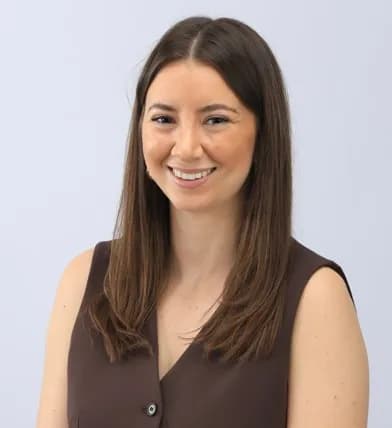
Rachel Tolkin
Registered Psychotherapist (Qualifying) (ON)

Joanne Prysunka
Canadian Certified Counsellor

Stacy Kirkbride
Registered Psychotherapist (ON)

Natalie Bender
Registered Psychotherapist (Qualifying) (ON)

Jessica Marshall
Registered Counselling Therapist (NS)

Kat Sevsek
Registered Psychotherapist (Qualifying) (ON)

Jeromy Deleff
Canadian Certified Counsellor

Andrea Laurie
Canadian Certified Counsellor

Natasha Elliott
Registered Psychotherapist (ON)

Carol Ma
Registered Social Worker (ON)

Christine Chambers
Registered Psychotherapist (ON)

Jessica Maronski
Registered Psychotherapist (ON)

Delia Petrescu
Registered Psychotherapist (ON)

Melissa Recine
Registered Psychotherapist (ON)

Michaela Leedahl
Registered Social Worker (SK)

Liz Hagerty
Registered Social Worker (BC)

Kimia Taghavi
Registered Psychotherapist (Qualifying) (ON)

Diana Freitas
Registered Social Worker (ON)

Marla Soubhie
Registered Psychotherapist (Qualifying) (ON)

Rachel Tolkin
Registered Psychotherapist (Qualifying) (ON)

Joanne Prysunka
Canadian Certified Counsellor

Stacy Kirkbride
Registered Psychotherapist (ON)

